Canada Foundation for Innovation Awards $1.2 Million to Carleton University Researchers
Nine Carleton University researchers have received new funding from the Canada Foundation for Innovation’s (CFI) John R. Evans Leaders Fund (JELF). The projects focus on a range of topics, including solutions for plastic pollution, mental health, heritage conservation and sonic arts.
The CFI JELF funds state-of-the-art equipment and facilities to mobilize knowledge, spur innovation and commercialization, and empower the talented minds of a new generation.
The total of $1,262,931 awarded by CFI will contribute to projects totalling over $3.3 million to provide the equipment necessary for driving forward research development. The CFI funding represents up to 40 per cent of the total, with additional funds anticipated from the Ontario Research Fund and other sources.
“Carleton is proud of the continued recognition our innovative research is receiving in areas critical to improving the lives of Canadians,” said Rafik Goubran, Vice-President (Research, Innovation and International). “We would like to thank the Canada Foundation for Innovation for the ongoing support of the awarded researchers.”
See how the funding will benefit the recipients’ projects:
Lowering the burden: Identifying metabolic costs of stress to improve resilience
Alfonso Abizaid, Department of Neuroscience
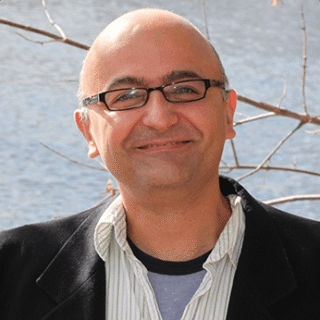
Stress is potentially the most significant factor impacting human health, yet it remains difficult to determine who will be more sensitive to developing stress-related health complications, such as depression, anxiety and post-traumatic stress disorder. Abizaid’s team is investigating ways to predict vulnerability or resilience to stress-induced conditions and provide new treatments for these conditions.
Working from the perspective that stressors represent a physical burden, Abizaid is testing the hypothesis that individuals with the ability to efficiently process energy sources, like fat and carbohydrates from food, also called metabolic efficiency, are more resilient to stress-induced conditions. Abizaid will manipulate behavioural, cellular and metabolic factors associated with metabolic efficiency and examine if metabolic efficiency factors can be used as markers to predict vulnerability and resilience. Ultimately, Abizaid’s research could lead to new diagnostic tools that provide susceptibility or resilience measures even before stressors occur.
Infrastructure to Support a Synthetic Energetic Materials Laboratory
Katherine Marczenko, Department of Chemistry

For centuries, energetic materials (EMs) have played a crucial role in various mechanical energy applications, from civilian to military. However, there is an inherent energy-safety balance, where high-performing materials are often the most difficult to handle. Marczenko is studying ways to make EMs safer and more efficient by investigating how the structure of an EM affects the initiation of an explosive reaction.
Marczenko’s team will develop a new class of EMs called Photoresponsive Energetic Materials, which can convert UV-light energy into mechanical energy. The intense strain and stress created during this molecular reaction break the molecular crystals apart, releasing mechanical energy. Employing light as a trigger allows precise control over when and where the reaction occurs. The research will pave the way for new defense and military technologies while placing Canadian research at the forefront of material development.
Inter-generational impact of maternal obesity on structure and function of skeletal muscle
Eng Kuan Moo, Department of Mechanical and Aerospace Engineering
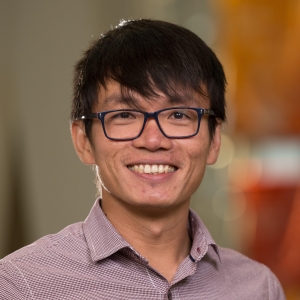
Due to the modern sedentary lifestyle, one out of four Canadian adults is obese. Obesity negatively impacts vital skeletal muscles, preventing them from properly supporting the daily mobility of obese individuals. Evidence suggests the effects of obesity extend to the next generation through maternal obesity. Currently, the extent of skeletal muscle impairments for children affected by maternal obesity is unknown. Long-lasting, untreated muscle weakness in children may lead to progressive weight gain and loss of quality of life.
Moo’s team is developing a multi-generational (mother and offspring) small animal model to study the lasting effects of maternal obesity on the muscles of offspring. Early detection of the impact of weakness in these offspring could create awareness among clinicians and the public, enabling the development of intervention programs for the musculoskeletal health of future generations.
Upcycling plastic waste using yeast fermentation
Eugene Fletcher, Department of Biology
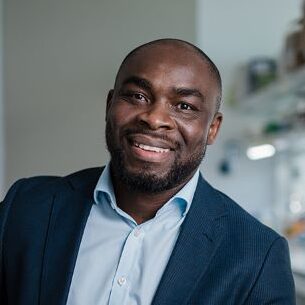
Plastic pollution is a global issue not only impacting the environment but also human health, as they are not biodegradable. Plastics fragment into microplastics that can pose health risks when inhaled or consumed through food and water. While there are recommendations for banning single-use plastics and breaking plastics down to create new plastics, these methods can be impractical. As a new step toward eliminating plastic pollution, Fletcher’s team will explore innovative ways of converting plastics into valuable chemicals, such as biofuels.
Fletcher’s solution involves genetically modifying brewer’s yeast to recognize the chemical building blocks of plastics as a food source. Yeast strains can convert plastic-derived compounds into bioethanol, a fuel that brewer’s yeast naturally produces. Fletcher’s research will also train skilled talent for Canada’s burgeoning bioeconomy workforce in growing sectors such as bioenergy, waste management and biomanufacturing.
Student absenteeism and child mental health in the post-pandemic era
Maria Rogers, Department of Psychology

The COVID-19 pandemic led to a sharp rise in school absenteeism among children and youth worldwide, with research indicating that student absences have doubled or even tripled in some areas. At the same time, rates of mental health challenges among children have reached unprecedented levels. Given the critical connection between school attendance and long-term well-being, Rogers’ research seeks to tackle the pressing issue of chronic absenteeism.
Rogers’ lab will conduct large-scale studies to unravel the complexities of this issue, combining quantitative data analysis with in-depth qualitative insights from students, teachers, clinicians, and parents. Partnering with community mental health clinics, the research will employ mixed methods approaches, including focus groups and statistical modelling, to identify key drivers of school absenteeism. The findings will have important implications for education policy and mental health support, playing a crucial role in Canada’s post-pandemic recovery and strengthening preparedness for future public health crises.
Digital Workflows for Assessment of the Built Environment
Mario Santana Quintero, Department of Civil and Environmental Engineering and Azrieli School of Architecture & Urbanism, Faculty member of the Carleton Immersive Media Studio (CIMS), Co-Chair, UNESCO Chair on Digital Workflows for World Heritage Conservation
Stephen Fai, Azrieli School of Architecture & Urbanism, director of the CIMS
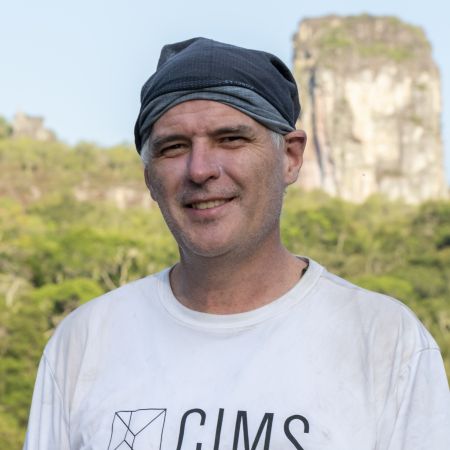
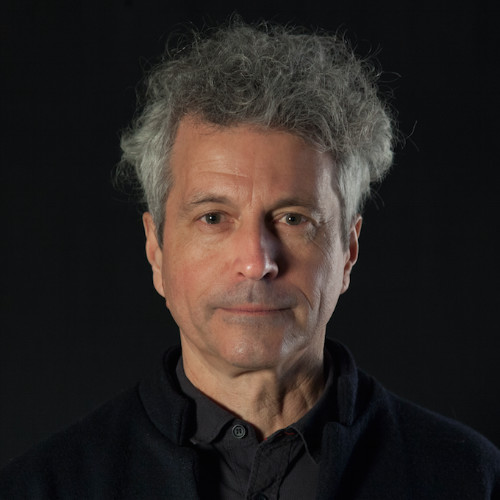
Historic places, defined by their cultural significance, construction techniques and materials, face unprecedented challenges from escalating threats posed by climate change and environmental risks. In Canada, over 3,600 federal heritage buildings and millions of pre-1977 dwellings highlight the urgent need for action. Leveraging expertise in digital documentation, Santana Quintero and Fai plan to develop dynamic digital twins with the CIMS and the UNESCO Chair on Digital Workflows for World Heritage Conservation, enabling comprehensive assessments, risk modelling and collaborative decision-making to conserve historical assets.
Objectives include deploying tools like 3D scanners, high-resolution imaging systems, and drones to capture scalable datasets of any site; advanced simulation models to assess disaster, development and weathering impacts; and a hybrid collaborative research platform to foster interdisciplinary collaboration, integrating real-time data sharing with immersive visualization. Aligned with the United Nations Sustainable Development Goals, the initiative will provide actionable insights for adapting historic places to evolving risks and fostering resilient communities.
Metal mobilization from thawing permafrost
Elliott Skierszkan, Institute for Environmental and Interdisciplinary Sciences and Department of Earth Sciences
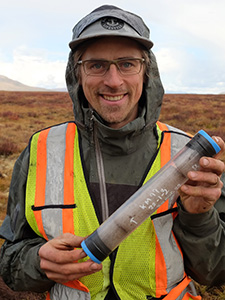
Almost half of Canadian land is underlain by permafrost that is thawing due to global warming. This thaw is mobilizing metals, which appear in soil, rock and water and are essential micronutrients in humans and animals but can be toxic at excessive doses. This is a pressing issue in Canada, where northern communities rely on local water resources, and surging global demand for critical minerals is stimulating mineral exploration and extraction activity.
Skierszkan’s project will equip the Cold Region Geochemical Laboratory to address issues of metal mobilization. The facility will include field equipment devoted to water and permafrost sampling, and laboratory equipment needed to perform experiments and process permafrost samples under conditions relevant to cold regions. Skilled talent contributing to the project will acquire specialized knowledge on water resources in cold regions that support better water-resource management, improved watershed planning and protection, and better-informed mine-site management practices.
Sonic Arts Participation Lab
Ellen Waterman, School for Studies in Art and Culture: Music
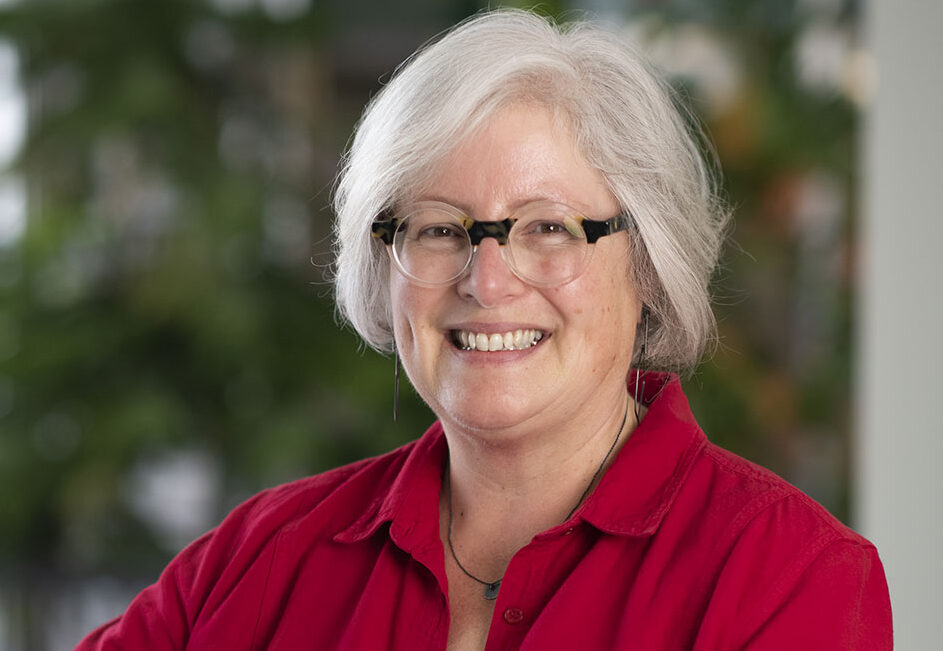
Waterman’s Sonic Arts Participation Lab facilitates community-engaged research-creation projects in music, sound and audiovisual art to address the complexities of ideological, technological and environmental social change in Canada. The lab will comprise adaptive audio and video equipment for co-creation, presentation, recording, post-production and analysis of these collaborations. Using the novel community-engaged research-creation methodology, Waterman’s team will help Canadians relate to their experiences, engage in dialogues across differences and promote an understanding of how change affects our diverse society.
The lab takes an intersectional and contextual approach to two themes: Equitable Participation in Society and Creative Adaptations to Climate Change. Project participants are invited to uncover unexpressed ideas and work through differences to discover new insights. Through ethnographic documentation and analysis, Waterman will bring insights into focus for effective knowledge translation, ensuring they can be applied to broader contexts amidst bewildering social changes shaping Canada today.
Sensors for multi-scale laboratory experiments on soils
Elena Zabolotnii, Department of Civil and Environmental Engineering

Zabolotnii is developing novel ways to safeguard tailings deposits, a by-product of mining that can adversely affect the local environment. Using CFI funding, Zabolotnii’s team will use cutting-edge sensor systems to monitor the tailings materials’ mechanical behaviour in large-scale physical experiments at Carleton University. In the experiments, the tailings will be brought to failure in a controlled environment so that pre- and post-failure behaviour can be investigated.
Zabolotnii’s soil experiments are unrivalled in scale and the quality of information collected. Fiber optic sensors will capture movement in tailings at unprecedented resolutions, potentially detecting localized zones of failure as small as 1mm thick. With this enhanced accuracy, Zabolotnii’s research can yield real solutions for mining multinationals engaged in multi-billion-dollar efforts to find reliable ways of securing tailings deposits across Canada.
Join us in congratulating the recipients as we feature their projects on X and LinkedIn.
More Carleton research news: